外研版必修2 Module 2 No Drugs Listening and vocabulary 课件(33张PPT)无音频
文档属性
| 名称 | 外研版必修2 Module 2 No Drugs Listening and vocabulary 课件(33张PPT)无音频 |  | |
| 格式 | zip | ||
| 文件大小 | 167.0KB | ||
| 资源类型 | 教案 | ||
| 版本资源 | 外研版 | ||
| 科目 | 英语 | ||
| 更新时间 | 2020-05-10 17:51:12 | ||
图片预览

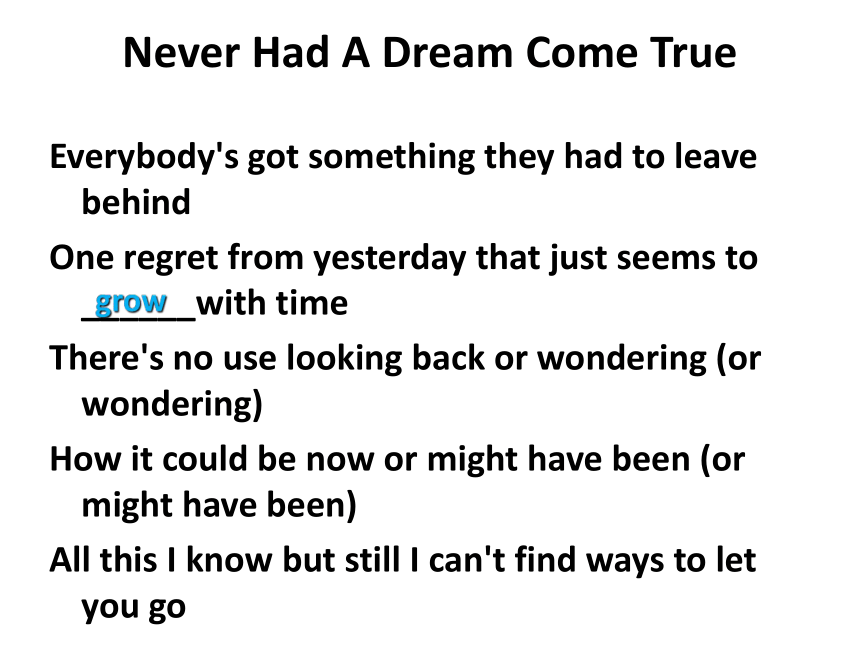
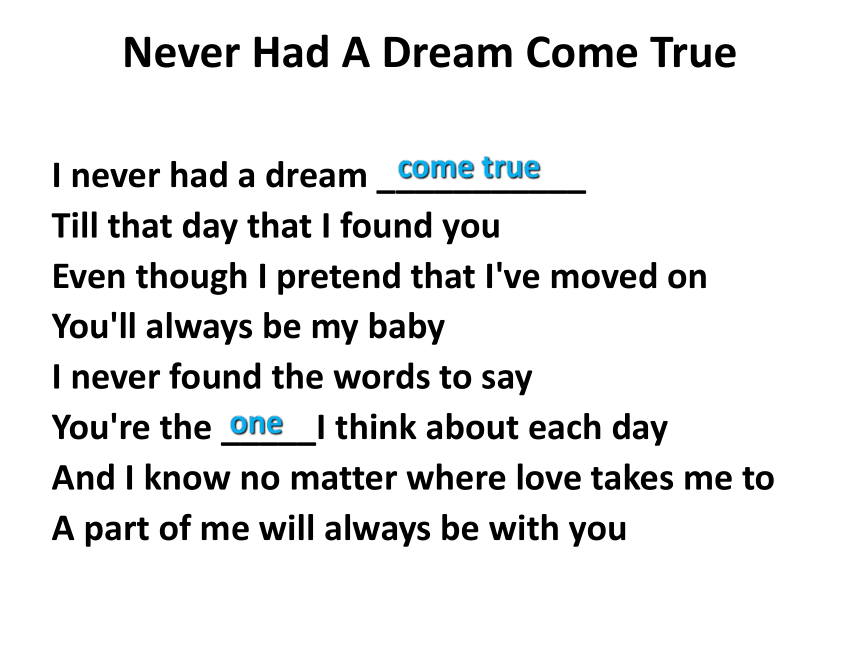
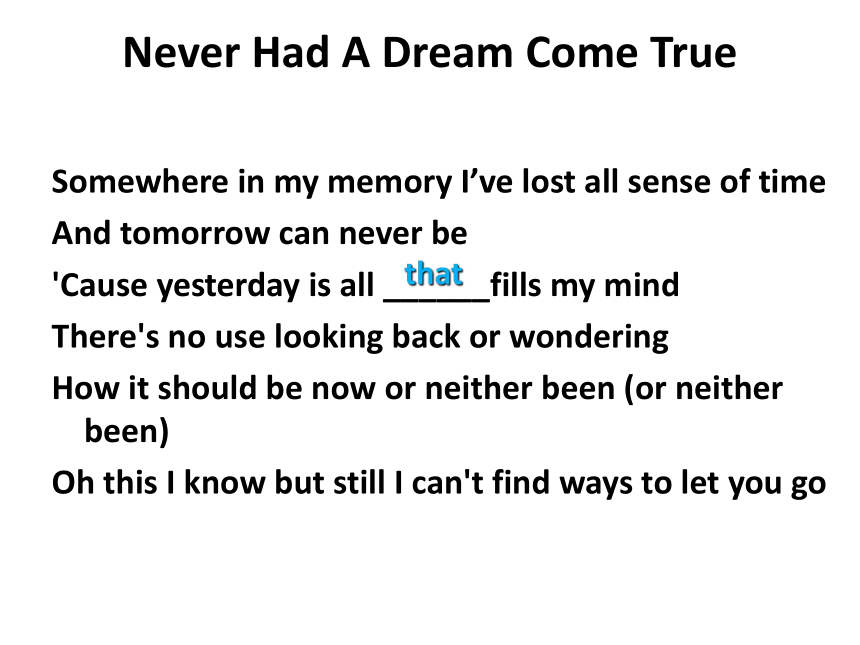

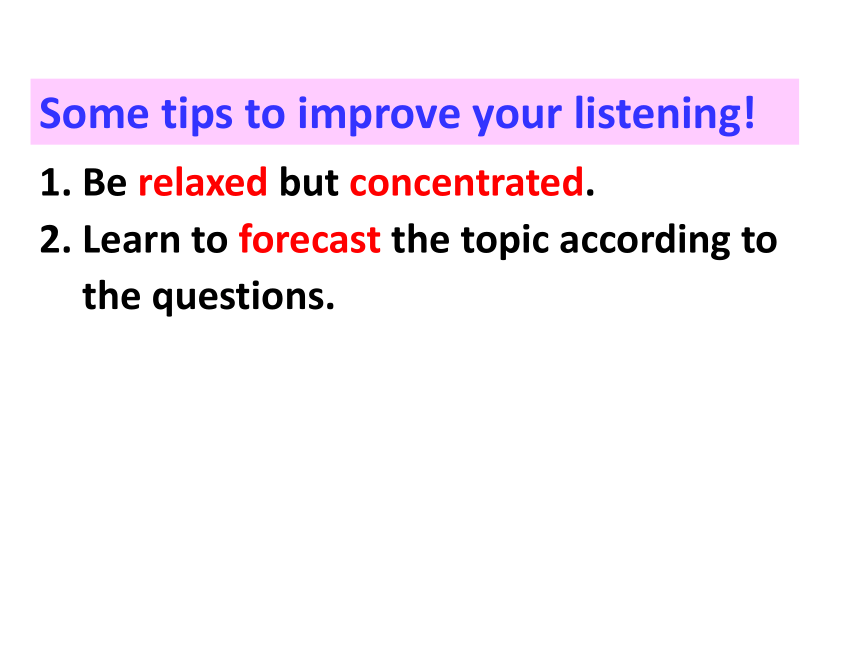




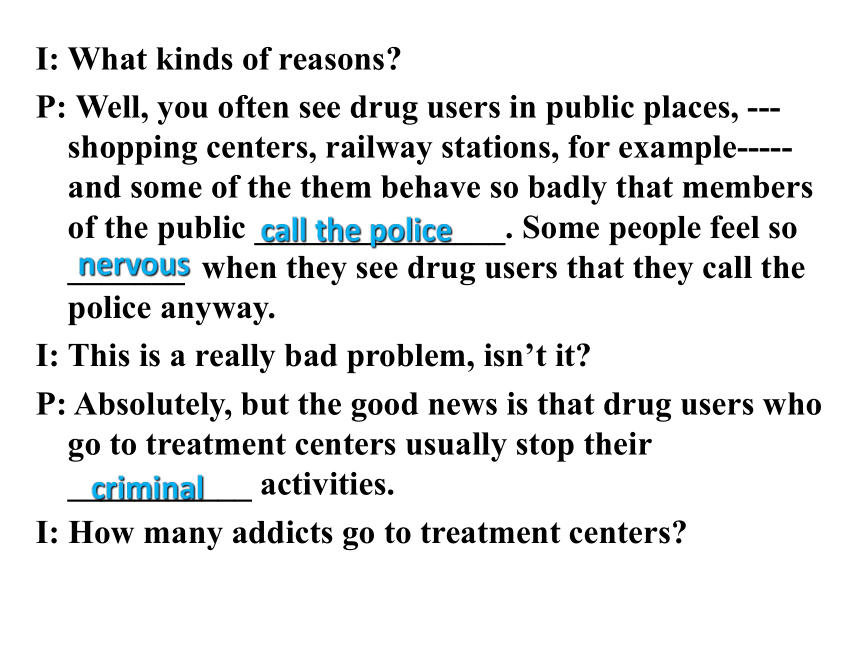
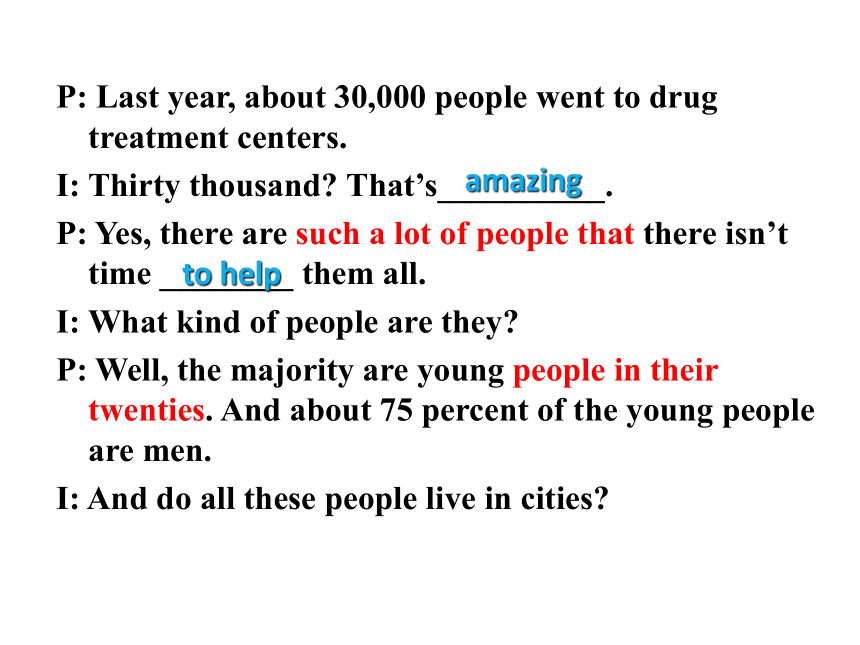
文档简介
课件33张PPT。Listening and vocabulary Never Had A Dream Come True
Everybody's got something they had to leave behind
One regret from yesterday that just seems to ______with time
There's no use looking back or wondering (or wondering)
How it could be now or might have been (or might have been)
All this I know but still I can't find ways to let you go
growI never had a dream ___________
Till that day that I found you
Even though I pretend that I've moved on
You'll always be my baby
I never found the words to say
You're the _____I think about each day
And I know no matter where love takes me to
A part of me will always be with you
Never Had A Dream Come True come trueoneSomewhere in my memory I’ve lost all sense of time
And tomorrow can never be
'Cause yesterday is all ______fills my mind
There's no use looking back or wondering
How it should be now or neither been (or neither been)
Oh this I know but still I can't find ways to let you go
Never Had A Dream Come True thatI never had a dream ___________
Till that day that I found you
Even though I pretend that I've moved on
You'll always be my baby
I never found the words to say
You're the _____I think about each day
And I know no matter where love takes me to
A part of me will always be with you
Never Had A Dream Come True come trueoneSome tips to improve your listening!Be relaxed but concentrated.
Learn to forecast the topic according to the questions.1. How many people are there talking?
2. Which of the words and phrases are mentioned(被提到) in the listening part?
drug addiction, commit a crime, shoplifting, burglary
3. What’s the interview about?Now, listen to the interview(采访) for the first time and answer the questions.Now, listen to the interview(采访) for the second time and fill in the blanks.I: Good evening, and welcome to the show. With me in the studio is Professor Marion Smith, who is an expert on the ___________ between crime and drug addiction. Good evening, Professor Smith.
P: Good evening.
I: First of all, how many people use _________ drugs in Britain?
P: Possibly four million people.
I: Really? Four million?
P: Yes.
I: How many of them ________ the law in order to pay for their drugs?connectionillegalbreak P: We estimate that a hundred thousand people ______ in order to pay for their drug addiction.
I: A hundred thousand?! That’s incredible. And what kinds of __________ do they commit?
P: Mainly shoplifting----- in other words, stealing from shops---- and burglary, stealing from houses.
I: I see.
P: And there’s another problem. Drug users get into trouble with the police for other reasons as well.stealcrimesI: What kinds of reasons?
P: Well, you often see drug users in public places, ---shopping centers, railway stations, for example----- and some of the them behave so badly that members of the public _______________. Some people feel so _______ when they see drug users that they call the police anyway.
I: This is a really bad problem, isn’t it?
P: Absolutely, but the good news is that drug users who go to treatment centers usually stop their ___________ activities.
I: How many addicts go to treatment centers?call the policenervouscriminalP: Last year, about 30,000 people went to drug treatment centers.
I: Thirty thousand? That’s__________.
P: Yes, there are such a lot of people that there isn’t time ________ them all.
I: What kind of people are they?
P: Well, the majority are young people in their twenties. And about 75 percent of the young people are men.
I: And do all these people live in cities?amazingto help P: Oh no. The ratio of drug users in society is the same in cities and in the countryside. But they all have something in common.
I: What is that?
P: Drug users are more likely to ________________ at school.
I: Professor Marion Smith, thank you very much.
P: Thank youget into troubleNow, listen to tape again and answer the questions.1. Is the woman in the studio a police officer?
No, she is a professor.
2. Is she sure about the number of people who use illegal drugs in Britain?
No, she isn’t.Interviewer: First of all, how many people use illegal drugs in Britain?
Professor: Possibly four million people.
Interviewer: A hundred thousand?! That’s incredible! And what kind of crimes do they commit?
Professor: Mainly shoplifting – in other words, stealing from shops – and burglary, stealing from houses.
Interviewer: I see.
possibly, …
in other words,…
With me in the studio is Professor Marion Smith, who is an expert on the connection between…
words:
phrases:
sentence
structures:Some tips to improve your listening!For daily use:
First of all,
in other words,
That’s incredible!
I see.
anyway
Really?Listen to learn Listen to learn Useful expressions:
the connection between … and …
break the law
get into trouble
have something in common
such … that …
Mufasa: Look, Simba, everything the light touches is our ________.
Simba: Wow!
Mufasa: A king’s time as ruler ____ and ____ like the sun. one day, Simba, the sun will set on my time here and rise with you as the new king. kingdomrisesfalls(Mufasa, the lion king is telling Simba, his son, an important rule of life.)Simba: And this all be mine?
Mufasa: __________!
Simba: Everything the light touches! What about that shadowy place?
Mufasa: That’s ______ our borders, you must _____ go there, Simba.Everything beyondneverSimba: But I thought a king can do ________ he wants.
Mufasa: Oh, there’s more to being a king
than getting your way all the
time.
Simba: There’s more?whateverMufasa: Simba, everything you see exists together in a delicate ______. As a king, you need to understand that balance and ______ all the creatures from the crawling(爬行的) ant to the leaping antelope(羚羊).balancerespectInterviewer: Good evening, and welcome to the show. With me in the studio is Professor Marion Smith, who is an expert on the connection between crime and drug addiction. Good evening, Professor Smith.Listening materialProfessor: Good evening.
Interviewer: First of all, how many people use illegal drugs in Britain?
Professor: Possibly four million people.
Interviewer: Really? Four million?
Professor: Yes.Interviewer: How many of them break the law in order to pay for their drugs?
Professor: It’s possible that a hundred thousand people steal in order to pay for their drug addiction.
Interviewer: A hundred thousand? ! That’s incredible! And what kind of crimes do they commit?Professor: Mainly shoplifting – in other words, stealing from shops – and burglary, stealing from houses.
Interviewer: I see.
Professor: And there’s another problem. Drug users get into trouble with the police for other reasons as well.
Interviewer: What kind of reasons?Professor: Well, you often see drug users in public places – shopping centers, railway stations, for example – and some of them behave so badly that members of the public call the police. Some people feel so nervous when they see drug users that they call the police anyway.Interviewer: This is a really bad problem, isn’t it?
Professor: Absolutely, but the good news is that drug users who go to treatment centers usually stop their criminal activities.
Interviewer: How many addicts go to treatment centers?Professor: Last year, about 30,000 people went to drug treatment centers.
Interviewer: Thirty thousand? That’s amazing.
Professor: Yes, there are such a lot of people that there isn’t time to help them all. Interviewer: What kind of people are they?
Professor: Well, the majority are young people in their twenties. And about 75 percent of the young people are men.
Interviewer: And do all these people live in cities? Professor: Oh no. The ratio of drug users in society is the same in cities and in the countryside. But they all have something in common.
Interviewer: What’s that?
Professor: Drug users are more likely to get into trouble at school.
Interviewer: Professor Marion Smith, thank you very much.
Professor: Thank you.
One regret from yesterday that just seems to ______with time
There's no use looking back or wondering (or wondering)
How it could be now or might have been (or might have been)
All this I know but still I can't find ways to let you go
growI never had a dream ___________
Till that day that I found you
Even though I pretend that I've moved on
You'll always be my baby
I never found the words to say
You're the _____I think about each day
And I know no matter where love takes me to
A part of me will always be with you
Never Had A Dream Come True come trueoneSomewhere in my memory I’ve lost all sense of time
And tomorrow can never be
'Cause yesterday is all ______fills my mind
There's no use looking back or wondering
How it should be now or neither been (or neither been)
Oh this I know but still I can't find ways to let you go
Never Had A Dream Come True thatI never had a dream ___________
Till that day that I found you
Even though I pretend that I've moved on
You'll always be my baby
I never found the words to say
You're the _____I think about each day
And I know no matter where love takes me to
A part of me will always be with you
Never Had A Dream Come True come trueoneSome tips to improve your listening!Be relaxed but concentrated.
Learn to forecast the topic according to the questions.1. How many people are there talking?
2. Which of the words and phrases are mentioned(被提到) in the listening part?
drug addiction, commit a crime, shoplifting, burglary
3. What’s the interview about?Now, listen to the interview(采访) for the first time and answer the questions.Now, listen to the interview(采访) for the second time and fill in the blanks.I: Good evening, and welcome to the show. With me in the studio is Professor Marion Smith, who is an expert on the ___________ between crime and drug addiction. Good evening, Professor Smith.
P: Good evening.
I: First of all, how many people use _________ drugs in Britain?
P: Possibly four million people.
I: Really? Four million?
P: Yes.
I: How many of them ________ the law in order to pay for their drugs?connectionillegalbreak P: We estimate that a hundred thousand people ______ in order to pay for their drug addiction.
I: A hundred thousand?! That’s incredible. And what kinds of __________ do they commit?
P: Mainly shoplifting----- in other words, stealing from shops---- and burglary, stealing from houses.
I: I see.
P: And there’s another problem. Drug users get into trouble with the police for other reasons as well.stealcrimesI: What kinds of reasons?
P: Well, you often see drug users in public places, ---shopping centers, railway stations, for example----- and some of the them behave so badly that members of the public _______________. Some people feel so _______ when they see drug users that they call the police anyway.
I: This is a really bad problem, isn’t it?
P: Absolutely, but the good news is that drug users who go to treatment centers usually stop their ___________ activities.
I: How many addicts go to treatment centers?call the policenervouscriminalP: Last year, about 30,000 people went to drug treatment centers.
I: Thirty thousand? That’s__________.
P: Yes, there are such a lot of people that there isn’t time ________ them all.
I: What kind of people are they?
P: Well, the majority are young people in their twenties. And about 75 percent of the young people are men.
I: And do all these people live in cities?amazingto help P: Oh no. The ratio of drug users in society is the same in cities and in the countryside. But they all have something in common.
I: What is that?
P: Drug users are more likely to ________________ at school.
I: Professor Marion Smith, thank you very much.
P: Thank youget into troubleNow, listen to tape again and answer the questions.1. Is the woman in the studio a police officer?
No, she is a professor.
2. Is she sure about the number of people who use illegal drugs in Britain?
No, she isn’t.Interviewer: First of all, how many people use illegal drugs in Britain?
Professor: Possibly four million people.
Interviewer: A hundred thousand?! That’s incredible! And what kind of crimes do they commit?
Professor: Mainly shoplifting – in other words, stealing from shops – and burglary, stealing from houses.
Interviewer: I see.
possibly, …
in other words,…
With me in the studio is Professor Marion Smith, who is an expert on the connection between…
words:
phrases:
sentence
structures:Some tips to improve your listening!For daily use:
First of all,
in other words,
That’s incredible!
I see.
anyway
Really?Listen to learn Listen to learn Useful expressions:
the connection between … and …
break the law
get into trouble
have something in common
such … that …
Mufasa: Look, Simba, everything the light touches is our ________.
Simba: Wow!
Mufasa: A king’s time as ruler ____ and ____ like the sun. one day, Simba, the sun will set on my time here and rise with you as the new king. kingdomrisesfalls(Mufasa, the lion king is telling Simba, his son, an important rule of life.)Simba: And this all be mine?
Mufasa: __________!
Simba: Everything the light touches! What about that shadowy place?
Mufasa: That’s ______ our borders, you must _____ go there, Simba.Everything beyondneverSimba: But I thought a king can do ________ he wants.
Mufasa: Oh, there’s more to being a king
than getting your way all the
time.
Simba: There’s more?whateverMufasa: Simba, everything you see exists together in a delicate ______. As a king, you need to understand that balance and ______ all the creatures from the crawling(爬行的) ant to the leaping antelope(羚羊).balancerespectInterviewer: Good evening, and welcome to the show. With me in the studio is Professor Marion Smith, who is an expert on the connection between crime and drug addiction. Good evening, Professor Smith.Listening materialProfessor: Good evening.
Interviewer: First of all, how many people use illegal drugs in Britain?
Professor: Possibly four million people.
Interviewer: Really? Four million?
Professor: Yes.Interviewer: How many of them break the law in order to pay for their drugs?
Professor: It’s possible that a hundred thousand people steal in order to pay for their drug addiction.
Interviewer: A hundred thousand? ! That’s incredible! And what kind of crimes do they commit?Professor: Mainly shoplifting – in other words, stealing from shops – and burglary, stealing from houses.
Interviewer: I see.
Professor: And there’s another problem. Drug users get into trouble with the police for other reasons as well.
Interviewer: What kind of reasons?Professor: Well, you often see drug users in public places – shopping centers, railway stations, for example – and some of them behave so badly that members of the public call the police. Some people feel so nervous when they see drug users that they call the police anyway.Interviewer: This is a really bad problem, isn’t it?
Professor: Absolutely, but the good news is that drug users who go to treatment centers usually stop their criminal activities.
Interviewer: How many addicts go to treatment centers?Professor: Last year, about 30,000 people went to drug treatment centers.
Interviewer: Thirty thousand? That’s amazing.
Professor: Yes, there are such a lot of people that there isn’t time to help them all. Interviewer: What kind of people are they?
Professor: Well, the majority are young people in their twenties. And about 75 percent of the young people are men.
Interviewer: And do all these people live in cities? Professor: Oh no. The ratio of drug users in society is the same in cities and in the countryside. But they all have something in common.
Interviewer: What’s that?
Professor: Drug users are more likely to get into trouble at school.
Interviewer: Professor Marion Smith, thank you very much.
Professor: Thank you.
